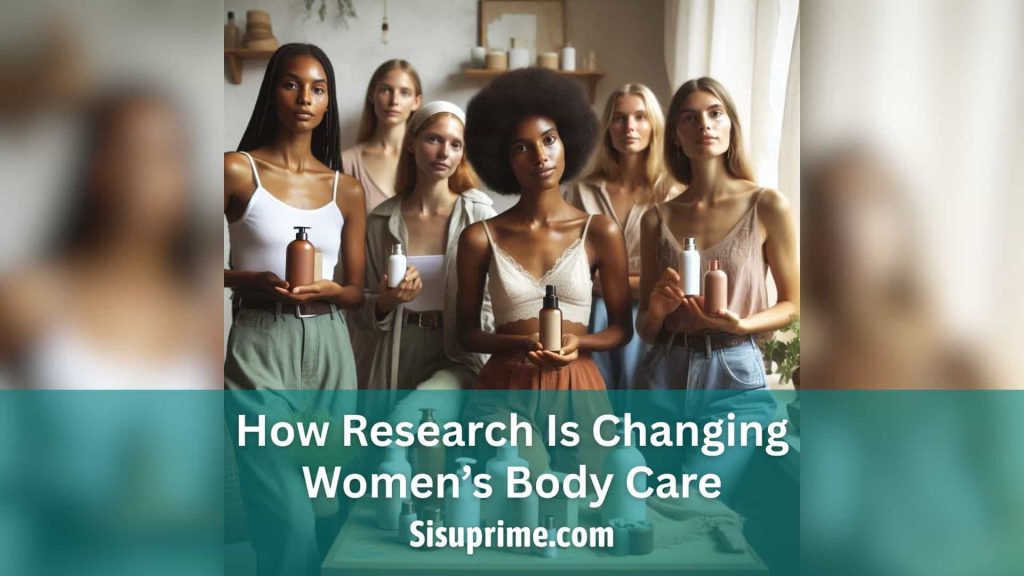Ever stood in that aisle, overwhelmed by options and unsure what’s truly safe? You’re not the only one. For years, attractive packaging won our trust. But today, science is exposing the hidden hormonal impact in everyday products—a concern especially serious for women tackling PCOS or hormonal imbalances.

Why Body Care is Getting a Scientific Makeover
What Today’s Research Tells Us
- PFAS in Deodorant: A 2024 Environmental Health News study found “forever chemicals” (PFAS) in 6 out of 15 deodorants. PFAS are connected to fertility issues, immune disruption, and cancer; they linger in the body and disturb hormone signals (Chaudhuri 2024, EHN Editors 2024).
- Endocrine Disruptors Rise: The Endocrine Society highlights how everyday exposure to endocrine-disrupting chemicals (EDCs), found from cosmetics to plastics, are increasingly tied to diabetes, infertility, and PCOS
- BPA and PCOS: New research shows women with PCOS often have higher BPA in blood and urine compared to those without the condition. (pubmed.ncbi.nlm.nih.gov).
- Phthalates Hidden in Fragrance: Phthalates, often masked by words like “fragrance, parfum” have been flagged for increasing insulin resistance and harming reproductive and heart health. (washingtonpost.com).
Why This Matters to You
- Product labels may not tell the full story – even “natural” products can hide harmful ingredients.
- Body care products can unintentionally fuel hormonal imbalance or worsen PCOS symptoms.
- You deserve body care backed by real science and not just marketing.
How Research Is Shaping Better Choices
Transparency Over Hype:
Science-Backed Formulas:
Community Voices Lead the Way:
Practical Steps for a Healthier Daily Routine
- Demand transparency: Avoid “fragrance/parfum” and check if brands do routine PFAS and phthalate testing.
- Choose truly clean: Try products like Sisuprime Prime Deodorant – non-toxic, baking soda–free, zero PFAS or hidden chemicals.
- Spot common EDCs:
- PFAS (“fluoro”, “–fane”)
- Phthalates (“DEP”, “DBP”, “fragrance”)
- BPA/BPS
- Parabens (methyl, propyl, butyl, benzyl)
- Formaldehyde releasers
- Triclosan
- Patch-test first: Before fully switching, apply a small amount to your skin; wait 24 hours for any reaction.
- Find your community: Real stories, like those shared in the Hamony Weekly newsletter, offer honest feedback and reassurance.
- Be an advocate: Support policies that ban PFAS and require honest labeling—making safer care available for all.
The Shift: Nourish Your Body, Support Your Hormones
You Deserve Evidence-Based Care
You now know what other labels don’t tell you and how diligent research illuminates your healthiest options. Imagine: feeling confident and cared-for every day, without compromise. Choosing products like Sisuprime Prime Deodorant isn’t just about freshness—it’s about investing in a healthier, more empowered you.
References
Chaudhuri, S. (2024, December 14). As fertility rates fall, some scientists say everyday chemicals are a factor. WSJ. Retrieved from https://www.wsj.com.
EHN Editors. (2024, March 1). Are you putting PFAS on your armpits? EHN. Retrieved from https://www.ehn.org.
Society, E. (2024, August 2). Latest science shows endocrine disrupting chemicals in plastics, pesticides, and other sources pose health threats globally. Endocrine Society. Retrieved from https://www.endocrine.org
Urbanetz, L. a. M. L., Soares‐Junior, J. M., Simões, R. D. S., Maciel, G. a. R., Baracat, M. C. P., & Baracat, E. C. (2024). Bisphenol A and polycystic ovary syndrome in human: A systematic review. International Journal of Gynecology & Obstetrics, 166(1), 190–203. https://doi.org/10.1002/ijgo.15349
Pasricha, T., MD. (2024, November 29). Fragrances may seem harmless. But the research is raising alarm. The Washington Post. Retrieved from https://www.washingtonpost.com
MAMAVATION | Non-Toxic products for healthy families. (2022, November 15). Retrieved from https://mamavation.com
